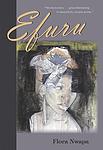Flora Nwapa
Flora Nwapa (1931–1993) was a pioneering Nigerian author and is considered Africa's first female novelist to be published in the English language. Her work often focused on women's roles in society, and she is best known for her novel 'Efuru', which was published in 1966. Nwapa's writing explores themes of tradition, gender, and identity, and she has been an influential figure in African literature.
Books
This list of books are ONLY the books that have been ranked on the lists that are aggregated on this site. This is not a comprehensive list of all books by this author.
-
1. Idu
This novel explores the life of Idu, a devoted wife whose existence becomes deeply intertwined with that of her husband, Amadi, who is the love of her life. Set against the backdrop of traditional Igbo society in Nigeria, the story delves into themes of love, loss, and the societal expectations placed upon women. When tragedy strikes and Idu is faced with Amadi's untimely death, her world is shattered, leading her to challenge the conventions and expectations of widowhood. Her profound connection to her husband transcends the physical realm, showcasing the depth of her love and commitment. Through Idu's journey, the narrative presents a poignant exploration of the roles of women, the significance of tradition, and the power of love to transcend the boundaries of life and death.
The 3082nd Greatest Book of All Time -
2. Efuru
The novel is a poignant exploration of the life of a strong and independent woman in a traditional Igbo community in Nigeria. The protagonist, after whom the book is named, is admired for her beauty, intelligence, and wealth, but she faces personal tragedies and societal pressures. Despite her successes in business and her contributions to her community, she struggles with the expectations placed on her as a woman, particularly with respect to marriage and childbearing. The narrative delves into themes of feminism, tradition, and the role of women in a changing society, as the protagonist navigates her relationships and seeks fulfillment in a culture that often values women primarily through their husbands and children.
The 3451st Greatest Book of All Time

